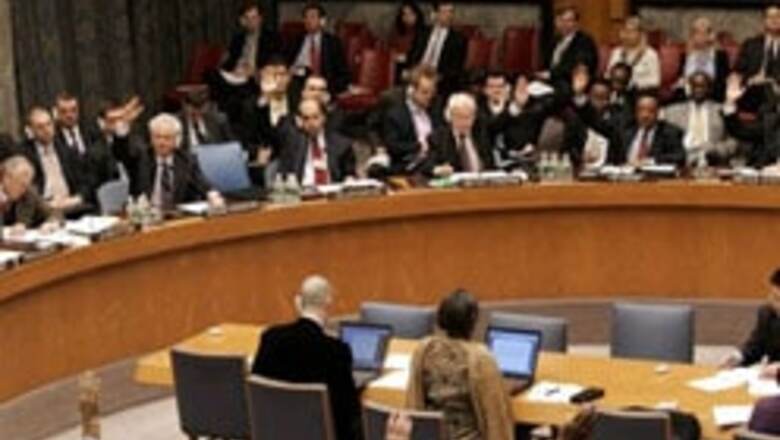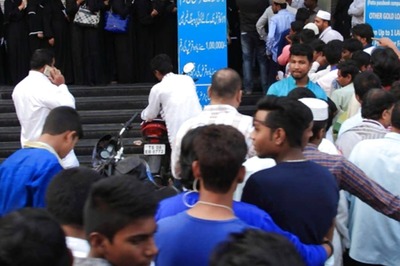
views
United Nations: Major powers proposed a final version of a UN resolution on Thursday to impose new sanctions on Iran over its refusal to suspend uranium enrichment and said a vote was likely within two days.
The five permanent members of the UN Security Council and Germany made minor amendments to the draft resolution on Thursday and it was made public after the Security Council met.
The new sanctions, agreed on last week by the six powers, would ban Iranian arms exports and freeze the assets of 28 additional individuals and organisations involved in Iran's nuclear and missile programs. About a third of those are linked to the Revolutionary Guard, an elite military corps.
The package also calls for voluntary restrictions on travel by the individuals subject to sanctions, on arms sales to Iran, and on new financial assistance or loans to the Iranian government.
The six powers rejected extensive amendments to the draft proposed by South Africa including a 90-day ''time out'' on all sanctions against Iran and elimination of an embargo on arms exports and financial sanctions targeting the Revolutionary Guards and an Iranian bank.
They also left out a proposal by Indonesia and Qatar calling for the Middle East to be free of weapons of mass destruction and the missiles to deliver them.
Acting US Ambassador Alejandro Wolff said that proposed amendment ''diverts from the focus of this resolution, which, again, is to bring Iran back into compliance with its obligations.'' The proposals would have had implications for Israel, a close US ally that is widely believed to have nuclear weapons though it has never officially acknowledged that.
''The text that we have submitted is one which we believe finds the center of gravity of the debate,'' British Ambassador Emyr Jones Parry told reporters after the closed-door Security Council meeting. ''It's an appropriate, proportional, incremental response to the situation.''
The sanctions are the latest attempt by the international community to pressure Iran to freeze its uranium enrichment, which can produce fuel for electricity-generating nuclear reactors as well as for atomic bombs.
The resolution has been put into final form, meaning it can be submitted for a Security Council vote after 24 hours, Jones Parry said. He said the vote will likely be Saturday, though Wolff said Friday evening was a possibility.
PAGE_BREAK
With the five veto-wielding members firmly behind it, the resolution is virtually certain to obtain the nine necessary votes in the 15-member council.
''We know we can get a majority, we hope we can get consensus,'' said Wolff. ''It is important, but that's essentially more of a symbolic objective.''
In December, the Security Council voted unanimously to impose limited sanctions on Iran, ordering all countries to stop supplying Iran with materials and technology that could contribute to its nuclear and missile programs and to freeze assets of 10 key Iranian companies and 12 individuals related to those programs.
Iran responded by announcing an expansion of its enrichment program, and Iranian President Mahmoud Ahmadinejad remains defiant, insisting the program is peaceful and aimed solely at producing electricity.
Ahmadinejad has asked to speak to the Security Council just before it votes on the new draft resolution.
In an interview with France-2 TV, Ahmadinejad said Thursday he would make new proposals to resolve the dispute, although he again rejected demands to suspend enrichment.
''Our proposals will be based on rights and laws and on the inalienable rights of all nations. Not only on what the United States or Great Britain wants,'' he said, without offering specifics.
If Ahmadinejad appears before the council, Wolff said he would be ''very open to hearing him say he'll abide by Security Council resolutions and meet his obligations. I hope says that.''

















Comments
0 comment